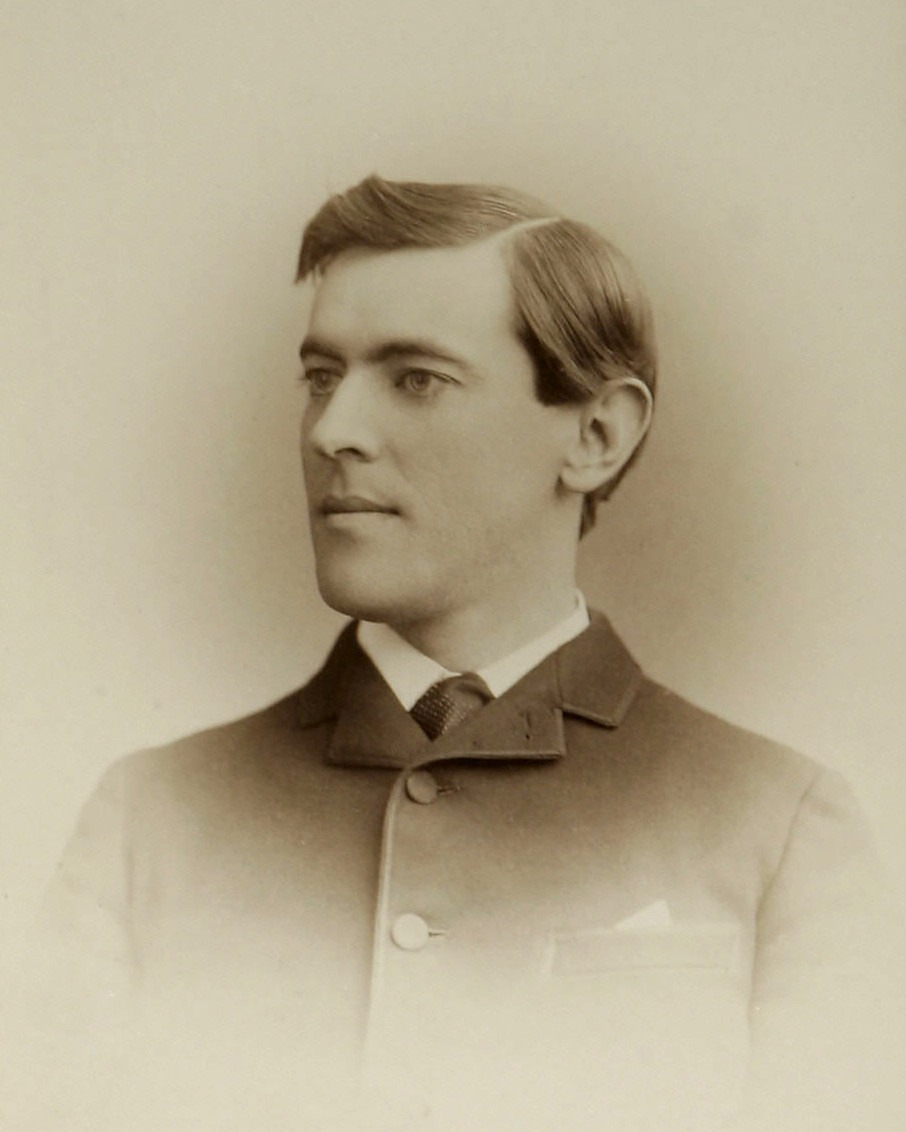The father of Woodrow Wilson, Joseph Ruggles Wilson, was a Presbyterian minister who had moved from Ohio to Virginia and was the son of Scottish-Irish immigrants; his mother, Janet Woodrow, daughter of a Presbyterian minister, was Scottish-born in England. He was the next president to have a foreign-born parent since Andrew Jackson.
Ironically, until a late age, the man who would later become one of the most potent and successful educators of his day never received any formal education, mainly because many of the South’s schools were closed during the Civil War. When he was nine years old, he could not even recite the alphabet and only read two years later.
Woodrow Wilson experienced the ravages of the Civil War from close quarters during his childhood. His father supported the Confederate cause. During the fighting, Wilson’s mother nursed wounded soldiers. Wilson saw Confederate President Jefferson Davis march in chains through Augusta after the battle and always recalled looking up at General Robert E. Lee’s vanquished face.
Education
Woodrow Wilson had an ordinary school academic record and impaired by dyslexia. He overcame his difficulties; moreover, he became a devoted scholar and was not taught to read until nine. Until the age of 12, he was homeschooled and taught the basics by his parents. He then attended school in Columbia, at Charles Heyward Barnwell. He attended Davidson College in 1873. He got sick at the end of his freshman year, which forced him to drop out. With A’s and B’s, he was an outstanding student and always seemed to enjoy debate in the Eumenean Society.
In North Carolina, Woodrow Wilson briefly attended Davison University, then transferred to Princeton University and graduated there in 1879. In 1886, he obtained his Ph.D. from the University of Johns Hopkins.
In his doctoral thesis, Woodrow Wilson studied the American political system and criticized what he thought was a breakdown of authority in Congress triggered by the committee system. The title of his study was ‘Congressional Government: A Study in American Politics.’ He claimed that only the country should be led by the president, a belief that did not alter until he was in the White House.
Academic Career
From 1885 to 1888, he taught ancient Greek and Roman History at ‘Bryn Mawr College.’ He eventually joined Wesleyan University, where he coached the football team and set up the discussion team. He became a jurisprudence and political economics professor at Princeton University in 1890. From 1902 to 1910, Woodrow Wilson also served as the president of the university.
During his stint at Princeton University, Woodrow Wilson was a top-rated teacher and was known for his radical ideas on education reform. He wanted to reform the admission method and pedagogical system, and he tried to make revolutionary changes to the curriculum.
It was his oratory talent, indeed, that brought him renown outside the university community. While at Princeton in May 1906, Wilson’s first stroke took place, severely threatening his life.
Woodrow Wilson’s books, a scrupulous writer, contain George Washington’s biography and the American People’s five-volume History.
He had been turned into a social Democrat by political aspirations and university politics, and in 1910 he was tapped for the governorship of New Jersey. A committed reformer, his accomplishments made him the favorite of the Socialists before his 1912 presidential victory.
Political Career
By 1910, Wilson had developed such a strong reputation as an educator that he was offered the nomination for governor by the Democratic Party in New Jersey. Governor Wilson demonstrated good leadership after winning the election, pushing through legislation dealing with problems like employers’ responsibility and public utilities. His popularity made him a popular 1912 presidential nominee. He was nominated for the forty-sixth vote, and in the November election, he went on to beat former President Theodore Roosevelt and current President William Howard Taft intensely.
Woodrow Wilson presided over the passage of his radical domestic platform of New Freedom during his first term. The 1913 Revenue Act’s selection, which reduced tariffs and introduced a federal income tax, was his first significant priority.
He even officiated the Federal Reserve Act, which established the Federal Reserve System, which serves as a central banking system. Two significant laws, the Federal Trade Commission Act and the Clayton Antitrust Act, were passed to manage and split up broad corporate interests known as trusts.
As the president, he maintained a neutrality policy between the Allied Powers and the Central Powers as World War I in 1914 broke. In the 1916 United States presidential race, he won re-election by a narrow margin, beating Republican candidate Charles Evans Hughes.
Soon, the warring nations started interfering with American trade. The British restricted American commerce, but a new kind of warfare, submarine warfare, was proclaimed by the Germans, with the possibility of American ships being sunk and losing their passengers and crew. German policies were taken more seriously by Wilson because they included the possible loss of human life, while the British only interfered with trade. As early as February 1915, the president announced that Germany would be kept to “strict accountability” for losing American lives due to a German declaration instituting the U-boat War.
Woodrow Wilson stayed for nearly three years in Washington until March 1921. He never wavered in his belief that the United States should join the League of Nations and ultimately join it, and he took a keen interest in politics.
Woodrow Wilson died at his Washington home in his sleep. In the newly started National Cathedral, his remains were buried; he is the only president buried in the capital city.
US Presidents | ||

